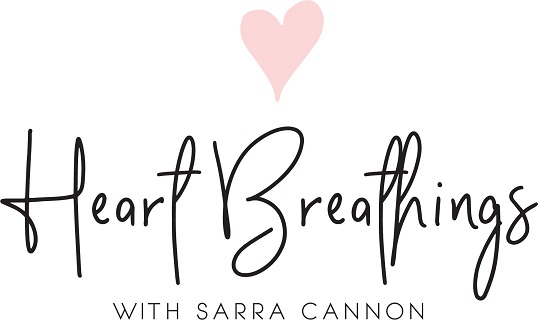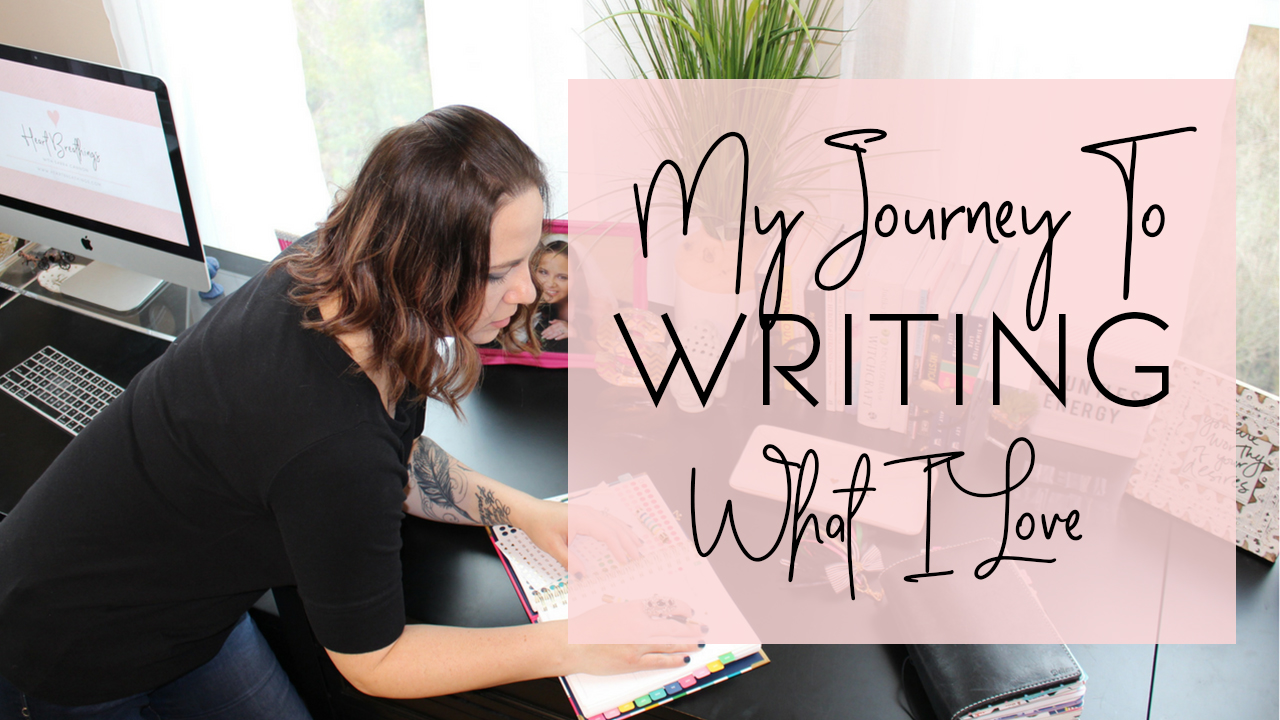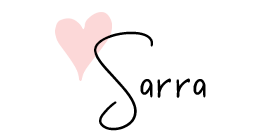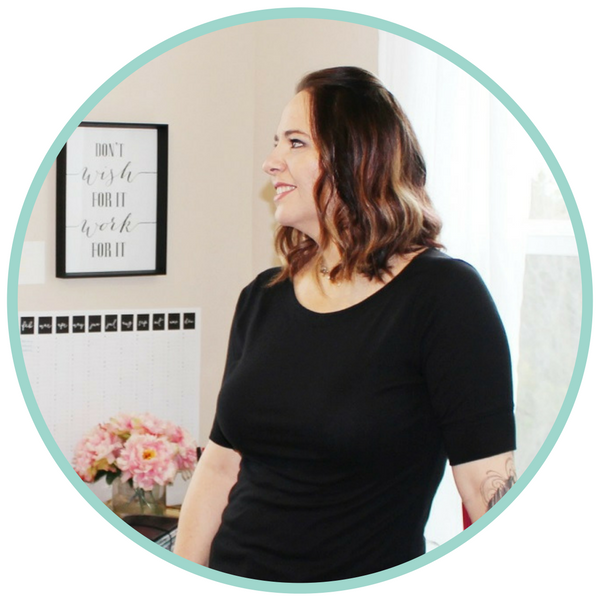

February 26, 2018 by Sarra Cannon
A Writer's Life | Self-Publishing Tips
Now that you’ve hopefully spent some time exploring what it is you truly want from your writing career, let’s talk about one of the next big decisions you’ll need to make on your road to being published. Where should you start? What book or series should you actually write?
It sounds like such a simple question, but after talking to so many people who have dreamed of writing for years, I have realized that this is actually one of the most daunting questions in the world. You want to be a success, but what if the genre you love most is not the most popular genre? What if no one wants to read your story?
I completely understand the fears you are facing. Trust me. When I first decided to quit my job in the hopes of learning to write well enough to actually make a living doing this, one of the most difficult and stress-inducing questions I asked myself was what in the world should I write?
Crazy as it may seem, I didn’t start by asking myself what I actually wanted to write.
I started by looking around at book stores and other authors online to see what might actually sell. One of the first answers that came to me was romance. I enjoyed reading it, and it seemed that everywhere I turned, some of the most successful authors around were the ones who were writing some type of romance novel.
So, that’s where I tried to start. Not out of complete, undying passion for writing romance, but rather out of some desperate hope to someday be a full-time author.
I spent months reading romances, trying to come up with a good enough story-line to pitch to an agent or an editor. I studied the market, hoping that I would find some magic formula that would allow me to write a great romance that sells.
Only, the problem was that every time I tried to start one of these books, I felt lost. I would start and stop. Try something new. Start again. Throw it away. Eat a box of cookies and binge watch some TV. Try again in the morning. But nothing would stick.
I vividly remember taking long walks with my boyfriend (now husband), whining for hours about how I wanted so badly to be lost in a story, but that I simply couldn’t force myself to write anything longer than a chapter or two.
He urged me to keep at it. Don’t give up. Why not write something else? Try something more like those paranormal TV shows or true crime documentaries I was always watching.
That’s when I first discovered NaNo WriMo. If you haven’t heard of it, NaNo is National Novel Writing Month. It’s a challenge every November for writers to pound out 50,000 words in a single month. The idea excited me, because up to that point, I’d only managed to write a handful of throwaway chapters.
I knew the NaNo WriMo challenge would give me the motivation I needed to see something through, but since it was just 30 days, I decided to throw caution to the wind and take my boyfriend’s advice. I decided to write something that really got me excited.
The story I chose was darker than anything else I’d tried to write so far. It was a supernatural mystery, one of my favorite genres of all time. When I came up with my idea, I didn’t even think about the market at all. I didn’t consider what might sell. I just thought about what would make me excited to get up every day and write.
As I saw it, that was really the only way I was going to get through 50,000 words in a month. If I was going to do it and be successful, I was going to have to write something I loved. Something just for me.
My character was a college-aged woman whose twin brother was accused of murdering his professor. She leaves her college life behind to go to her brother’s school and try to solve the mystery of this murder–and her brother’s subsequent disappearance–before the police could find him.
There was lots of mystery. Supernatural elements. And a really great romance between my main character and a young police officer. It was all the things I loved and wanted in a story, and I had the time of my life writing it.
When the month was over, I had a full 50,000 words of a novel. I had done it! And I had loved every minute of that story. My passion for writing had been ignited, and I was feeling hopeful.
During that month of November, I had also decided to join a local writing group. Since I had been set on writing romance, I joined the Romance Writers of America, which also led me to a local chapter there in Raleigh where I lived at the time.
My first event with this amazing group of women was a Christmas party, and while I was there, still high on the excitement of writing that supernatural mystery, I talked to a lot of professional romance authors.
I looked up to them so much, and I wanted nothing more than to be like them. I wanted to make a living writing books so badly, but the self-doubt was starting to get to me. When people asked me what I had been working on, I told them about my mystery with romantic elements. Several of them frowned, telling me that no agent or editor was going to be interested in buying a story about college-aged characters.
I was devastated and confused. I’d had so much fun writing that book, but what good was it if no one was ever going to buy it and publish it? Now, this was before self-publishing had really become the viable option for success that it is today. I felt lost, unsure if I should even bothering editing and finishing that story I had loved so much.
In fact, I never did go back to edit that story. It doesn’t even have a proper ending.
Instead, I listened to my own self-doubt.
Instead, I listened to my own self-doubt and decided once again that my best chance at actually making any money writing was to write a romance.
Over the next year, I worked on a contemporary romance story with the sole intention of pitching it to an editor at Harlequin at the next RWA conference. I threw myself into the book, but no matter how hard I tried, I never fell in love with it the same way I had that supernatural mystery. I finished the book, and I was enormously proud of it, but I just didn’t have that same excitement in my heart.
In the end, I did make it to that RWA conference, and I did pitch my romance novel to a Harlequin editor. I even got to meet Nora Roberts, but that’s another story for another day. The editor requested the full novel, and I sent it to her right away.
Then, I waited. My first official rejection letter came in the mail the day my fiance and I were leaving to get married in Vegas. I was devastated by the rejection, even though it did come with a nice note saying she loved my writing style but that the story had too much subplot for her line.
When I came home from the wedding, I sat down with a good friend and critique partner and told her I just wasn’t sure what to do next. The editor had liked my writing, so it was possible for me to try writing another story with less subplot and submit to her again.
But deep in my heart, I knew that just wasn’t my path. I had given myself a year to try to love writing that style of romance, but it just wasn’t me. I love reading it, and I have immense respect for romance writers, but that didn’t mean I was meant to write that genre.
My friend looked at me and shrugged. “You’re always reading and talking about Young Adult, Sarra. Why in the world are you not writing that?”
This was the big lightbulb moment for me. I just stared at her, that excitement growing in my heart all over again.
She was right. I LOVED young adult books. Especially ones with mystery and paranormal elements. Harry Potter. Twilight. Everything ever written by Lois Duncan or Christopher Pike. So why hadn’t I been writing those types of books?
For the first time since I’d left my teaching job to try my hand at writing, I felt free. It’s the weirdest thing, looking back on it now, because it makes so much sense. And yet, at the time, I was so hungry for success, and so unsure of myself, I couldn’t see my own desire. I couldn’t trust my own heart.
It was almost like I needed permission to write the books I wanted to write.
My journey to Beautiful Demons, my first publishing Young Adult novel, was still a winding road, but that moment at Panera with my good friend was the moment I finally gave myself permission to follow my own heart and write what I truly wanted to write.
The crazy thing, though, is that I was still so wrapped up in trying to write what an editor or agent might want to sign, that I still didn’t allow myself to be totally free. I still poured over agent blogs and writing tips, desperate to write a young adult novel that would make it into bookstores.
I spent another year working on a 90,000 word novel I called Pandemic. It was a genre mashup, which admittedly, was probably the worst thing I could have written if I was trying to actually sell to a traditional publisher. But I was caught somewhere between wanting to write what I wanted and trying to write for someone else.
My mind was not so much on the reader as it was on the idea of actually trying to make money at this writing gig. That’s not something I’m totally proud of, but I would bet it’s something you can relate to if you’re reading this now.
We all want to be a success. We all want to write what sells. But it’s hard to know for sure what that story is going to be. Do we write for ourselves? Or do we write for the market? It’s a tough question, for sure, but it’s one we all really should spend some time thinking about, because the answer is not an easy one.
Over the next year, i finished my book. Pandemic was a zombie apocalypse story with witches. I loved it, but at the same time, I knew in my heart it wasn’t great. I was writing what I loved in some ways, but I was also trying really hard to write it the way I thought someone else wanted me to write it.
I went to another RWA conference that following summer and made an appointment with my dream agent. I pitched Pandemic to her, and she requested the first three chapters. About six weeks later, I received my second–and last–rejection letter.
Once again, I got a message that she loved my voice and my writing style, but that she didn’t love the story enough to represent it. She said she wished me the best. The end.
It broke my heart, but at the same time, I knew I hadn’t done my best with that book. I had been writing it for her, and it still wasn’t good enough.
But I didn’t want to write for her. I didn’t want to write for any agent or editor. What I realized in that moment was that I wanted to write for me. I wanted to write for readers who were like me and who loved the types of books I loved.
The trick about that, though, was that I had to learn to trust myself enough to write from the heart. I had to strip myself of all those fears and doubts that kept me from writing a story that was truly me. And once I was exposed in that way, would anyone want to read it?
I decided to go for it. I pushed aside all of my fears. I buried the self-doubt. I went out and got a tattoo on my wrist that said, “Believe”, because I made a commitment right then and there to believe in myself. To believe that if I wanted to write it, there would be someone out there who would want to read it.
I wrote out a bunch of ideas, feeling more free and excited than I had in years. I felt like I had back in those November days when I had been writing that supernatural mystery. I was having fun rather than constantly worrying about whether I would be able to sell my book. For the first time in my career, the writing actually came first.
One night, I was watching Veronica Mars, and I suddenly had this thought. How cool would it be to write a story about a snarky teen like Veronica, but instead of a normal human, have her be a witch? That one idea set my imagination on fire, and I started writing immediately.
I didn’t think about whether I could sell this book. I only thought about how much I loved the story. I immersed myself in the joy and the adventure of it, and writing that book brought the true writer in me to life.
The book I wrote was called Beautiful Demons, and I self-published it on October 29, 2010. I sold 59 copies that first month, and it was the happiest time of my life. Since then, I’ve gone on to publish 9 books in that series with several spin-off novels. I’ve sold over 400,000 copies of those books, and I’ve had the time of my life writing each and every one of them.
All of us are faced with the same doubts and worries. Most of us want to make money and find some level of success with our writing. And all of us have to make the decision of what to write and put out into the world.
Sometimes, the journey is straight and you know exactly what you want to write. You know what lights your soul on fire, and you don’t hesitate to go after that.
But sometimes, I think the desire to make a living at this writing business can pull us in two directions. What if the genre we love most is not the most popular? What if people have told us taking another direction would be better? Or easier? Or faster?
It can be awfully tempting to write something we aren’t crazy passionate about in hopes of finding success. And the truth is that some people have found enormous amounts of success writing books that don’t necessarily light them up.
I’m not here to judge that in any way. We all have to do what’s right for ourselves. We all have to go down our own paths.
But if you’re reading this right now, and you’re realizing that you’re not writing what you truly want to write because you’re scared it won’t bring you the level of success you want, I am here to tell you that I know exactly how you feel. I have been exactly where you are right now.
It can be very scary to trust ourselves, sometimes. To trust our desires and our hearts. There are no guarantees that any genre or series, no matter how trendy or popular, is going to bring us any level of success. What if you make the wrong choice?
But what if you follow your heart? How could that ever be the wrong choice?
No, there are no guarantees that you’ll write the story you love most and sell half a million books. There is no crystal ball to show you your future or the best choice.
The only guide any of us really has is the one inside of us. The voice that says,”Yes, this is it.”
Sometimes, that voice is barely a whisper. It’s being drown out by all the other voices telling you what’s trendy, what’s easy, what’s popular. It’s hard to listen when you’re watching what other people around you are doing, especially when they’re finding that level of success you wish for with all your heart.
I can’t tell you that if you follow your heart and write what you love that you will be a huge overnight success. But I can promise you this.
You will be much happier and much more fulfilled if you write what you truly want to write.
Maybe it’s Romance. Maybe it’s Mysteries. Maybe it’s YA. Maybe it’s Science Fiction or Horror. Only you know the answer to that.
All I know for certain is that if you were called to be a writer, there is a story inside of you that no one else can tell. You have a gift to give to the world that can only come from your unique set of talents and experiences.
Embrace that. Write what you really want to write. Then learn the business side of it so that you can find a way to make money writing it.
Over the next month, I’m going to show you some of the strategies I’ve used to make a six-figure income writing books I love. I don’t always write in the most popular genres or hit the trendiest topics, but I always write what makes me happy and excited.
I’ve found a way to make money writing what I love, and I hope to help you do the same.
In the comments, I’d love to hear what you’re writing. What types of stories fire up your imagination? Have you been writing what you love? Or has this story about doubt resonated with you in some way? What are your biggest fears when it comes to choosing which stories to write? Let’s discuss it in the comments below.


I have been self-publishing my books since 2010, and in that time, I've sold well over half a million copies of my books. I'm not a superstar or a huge bestseller, but I have built an amazing career that brings me great joy. Here at Heart Breathings, I hope to help you find that same level of success. Let's do this.
I mostly love & write paranormal stuff, but I do carry a passion for books in multiple, and very different, genres. So I have also been planning a pen name and have started on that. But as much as I LOVE that genre, and have stories that I’d really like to tell in it, I’m definitely having a lot trouble with doubt. My story ideas don’t exactly mesh with the market’s norm. If I write these stories the way I want to write them, will I be disappointing the genre’s readers who have very high, and very defined, expectations? If I’m not meeting those expectations, I feel like I’ll be tanking my pen name’s chance before it even gets started. :/ This has been plaguing me for a while and it’s starting to effect all of my writing, not just the writing in that genre.
The doubts are horrible and, since we are often home alone with them, they take up all the space and crush you. I can totally relate with that part where you spoke of having written a bunch of throwaway chapters. I do that a lot too.
Like, I get this fire when a new story hits and I write frantically and I have fun.
But then time passes and the fire turns out to be just a flash in a pan and I shelf yet another story.
I don’t know what causes that, but I really wish it would stop.
I love and write paranormal and fantasy/dark fantasy/urban fantasy, but somehow, I have trouble reading those because I always end up being disappointed and/or very rarely find a story that drags me in.
I keep wondering what’s wrong with me…